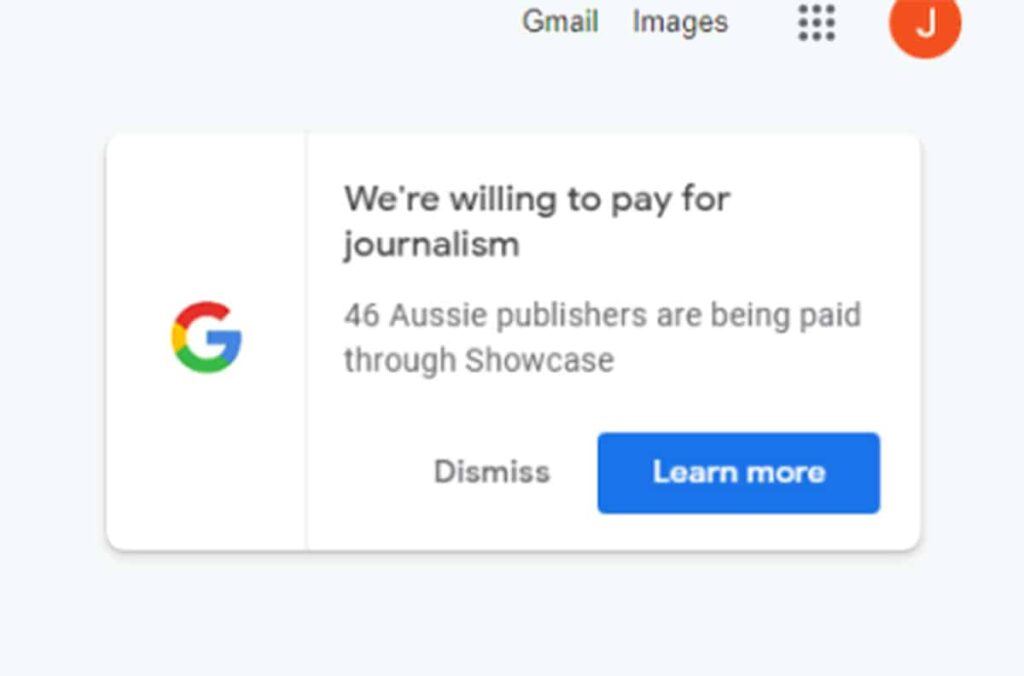Recently the ACCC proposed the News Media Bargaining Code, as an attempt to encourage and support journalism in Australia, and address bargaining power imbalances.
The backlash from major digital platforms like Google and Facebook was fast and dramatic – with Google even threatening to pull Google Search from Australia, potentially changing the internet as we know it.
At this stage, it’s probable that this is all just posturing and is very unlikely to occur. But with threats made at the highest levels, how could this potentially affect everyday businesses? The answer is that unfortunately, small businesses could end up the losers in the battle of the big guns.
What’s all the fuss?
The ACCC argues that major digital platforms like Google and Facebook have too much bargaining power over news sites.
The Code attempts to address that imbalance in a few ways, but most controversially by forcing those platforms to pay to link to news sites, and provide news-related businesses with advance notice when their search algorithms change.
Google is the major voice leading the objections – they argue that the internet is founded on free exchange of information, and being made to pay to link to news is unworkable and unfair.
Notifying businesses designated as “news sites” of algorithm changes is also almost impossible, due to the sheer number of changes made on a constant basis. It will also give those businesses an unfair advantage to work with the algorithms ahead of everyone else.
Rather than work with the Code as it stands, Google have threatened to pull Google Search altogether, removing a valuable tool that the vast majority of businesses heavily rely on. Other search engines could temporarily fill the gap, but will eventually encounter the same problems.
Why it matters to you.
If Google were to follow through with their threats to pull Google Search from Australia, small to medium businesses would be the biggest victims; with the time, money, and effort put into using SEO to achieve organic rankings completely wasted.
SEO levels the playing field, giving all businesses a chance to make their business discoverable online. Big businesses can afford to spend big on other forms of paid advertising, but those with a smaller budget will find it impossible to keep up.
The alternatives for businesses to find and attract customers are much less effective, much more expensive, and generally worse for smaller enterprises. Businesses could be forced to resort to marketplace-type online platforms, struggling to get their business noticed as their hard-earned organic rankings through SEO work are made null and void.
Keeping in the Game
If Google leaves our shores, SEO work might be rendered essentially useless. However, Google Ads could still be used to help make businesses discoverable. With the uncertainty ahead, businesses tossing up between Google Ads and SEO would do well to invest in Google Ads as the safer option, as offered here at MyWork.
So far, it’s likely all this posturing on both sides will calm down and a reasonable solution will be proposed. There is always the chance, though, that the Australian government will stick to their guns and those major digital players will be “forced” to withdraw or modify their Australian platforms.
If that does happen, smaller businesses will be the ones to bear the brunt of the backlash. As the dispute unfolds, we’d encourage businesses to keep an eye on the proceedings, and invest in online marketing that will still hold value regardless of the outcome.
Not sure where to start when it comes to advertising your website? Contact our expert team today and we can help you figure out the best options for your business, no matter what changes may come.
